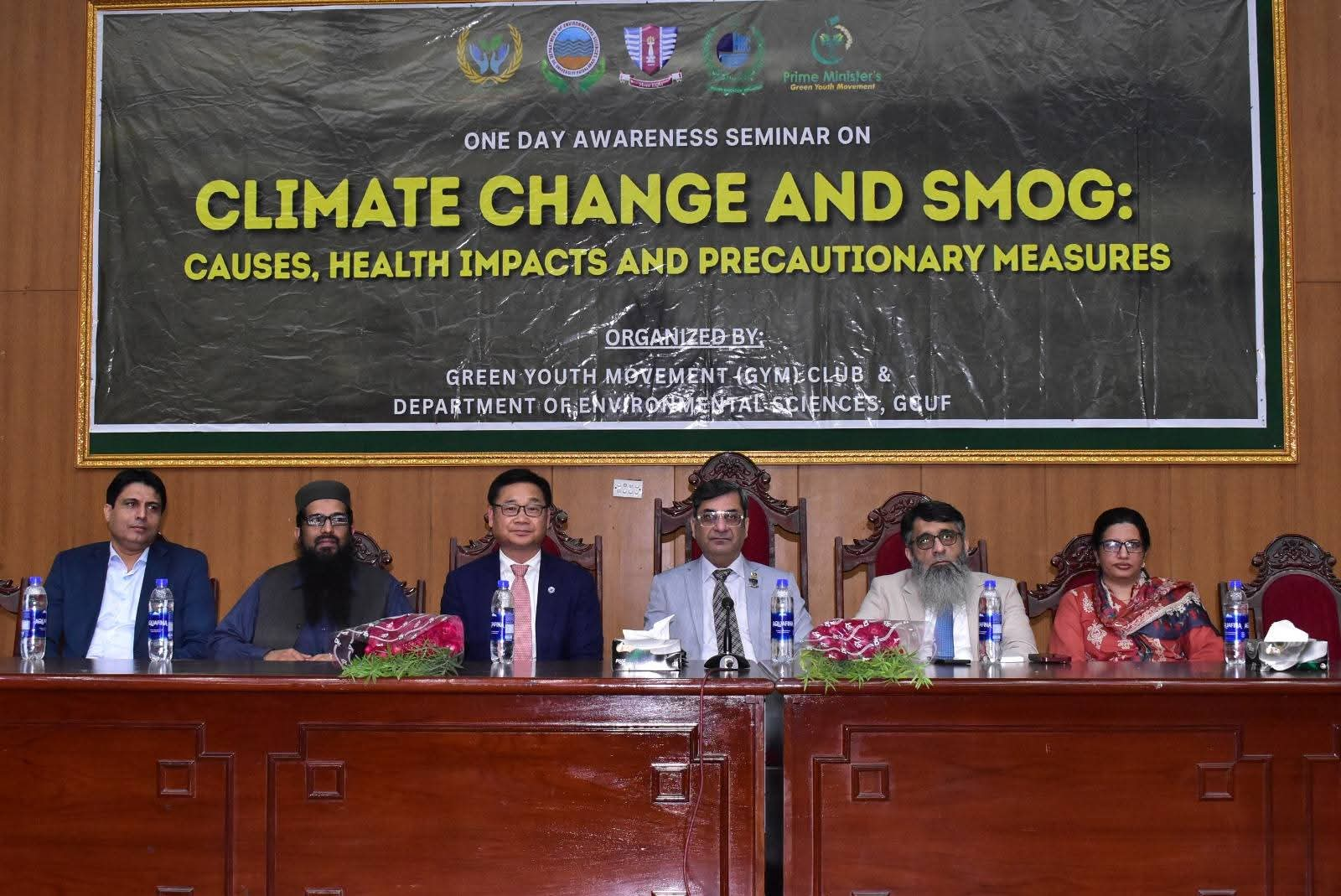Government College University Faisalabad organized an awareness seminar on climate change and smog

With the active participation of youth, educational institutions can play an effective role in environmental protection and addressing related issues.
This was stated by Vice Chancellor Prof. Dr. Rauf-i-Azam while addressing a seminar on climate change and smog.
Government College University Faisalabad organized an awareness seminar on climate change and smog, jointly arranged by the Green Youth Movement Club and the Department of Environmental Sciences. The seminar was titled “Climate Change and Smog: Causes, Impacts on Human Health, and Preventive Measures.”
At the beginning of the event, Professor Dr. Sabir Hussain, Chairman of the Department of Environmental Sciences and Focal Person of the Green Youth Movement Club, welcomed the participants and briefed them about the objectives of the seminar.
On this occasion, Vice Chancellor Prof. Dr. Rauf-i-Azam said that climate change is a global issue that requires proactive efforts from educational institutions. He urged the younger generation to actively participate in research and practical initiatives for environmental protection so that a clean and healthy environment can be ensured for future generations.
In the technical session, distinguished experts discussed various aspects of the topic.
Dr. Ghulam Mustafa Shah, Associate Professor at COMSATS University Vehari Campus, delivered a detailed lecture on “Chemical Causes of Smog and the Impact of Urban Development.”
Dr. Owais Fazal, Associate Professor at Faisalabad Medical University, spoke on “Smog and Human Health: The Hidden Dangers We Breathe.”
Meanwhile, Professor Dr. Gan Zhang from the Chinese Academy of Sciences, Guangzhou Institute of Geochemistry, China, gave a comprehensive talk on “Policy Making, Public Awareness, and Sustainable Measures for Smog Prevention.”
Guest of Honour, Professor Dr. Muhammad Irfan, Dean Faculty of Pharmaceutical Sciences, stated that environmental changes have deep impacts on human health, the economy, and society, and emphasized the need for collective action to address these challenges.
The seminar concluded with an interactive question-and-answer session, where students and faculty members engaged with the experts. The event proved to be an insightful and informative academic experience for students, enhancing their understanding of environmental pollution, the causes of smog, and effective strategies for its mitigation.




















